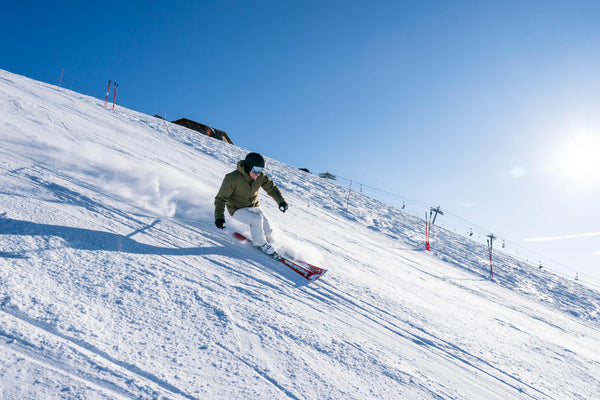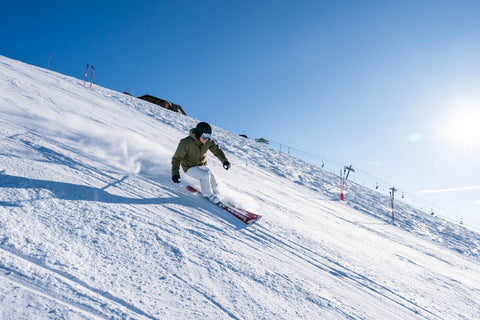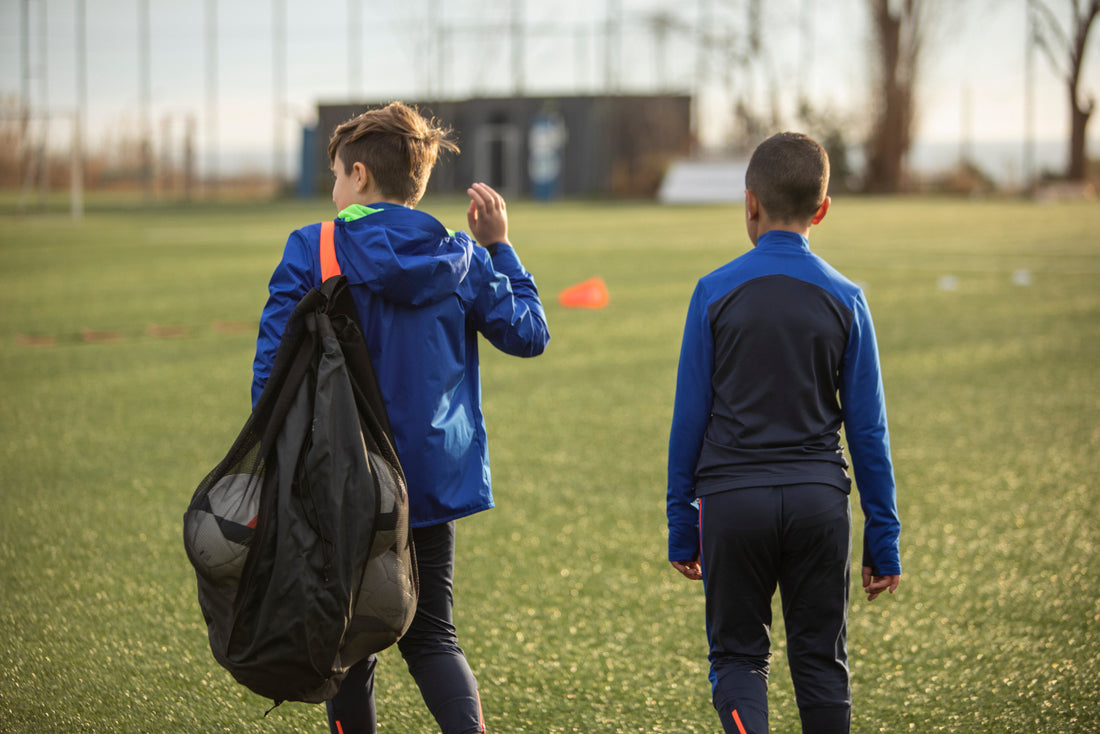Is it time to sign your child up for a new sport when school starts? Taking up a sport when school starts up is a rite of passage. But you might not be the only one with an opinion on the matter. Whether your child wants to stay active after a busy summer or you want them to meet new friends, we've got a few tips to help you find the right sport for your child.
Which sport is right for their age?
First, how children learn a sport depends on their age. You can see on a daily basis how fast they pick up new skills. One of the reasons is that everything they learn is new to them. Learning needs to be adapted to their age.
Let us explain with a little help from Karine, a physiotherapist.
Between 3 and 6 years old
At this age, the aim is to have your child have fun while being physically active through sport without pressure or competition. From dance to gymnastics, scootering or baby swim classes, the goal is to let them do a physical activity that boosts their imagination, motor skills and spatial awareness.
“For toddlers, it's about focusing on movement and balance. They're still discovering their own body movement. Sports that require handling an object, like a ball or racket, or spatial notions such as left/right or up/down are still difficult at this age. Judo is great for little ones. It's a good sport for learning how to balance, being off balance, how to fall. Plus, they can learn how to interact with others as their socialization skills are still developing.”
Their first sessions should be short and gentle, because they still need to rest as much as they do movement. The group aspect of games and physical activity will also take some time to get used to.
Between 7 and 10 years old
A chance to learn about rules, build lots of new skills and enjoy the mental benefits! Sports are a chance to stimulate kids' curiosity. Learning and practicing several sports helps kids improve their motor skills and spatial awareness, not to mention find an activity they truly enjoy. “At this age, children have reached neuro-motor maturity, and can learn more complex skills, spatial concepts and strategy.”
It's also an opportunity to alternate between individual sports (judo, fencing) and team sports (basketball, soccer, handball) to develop a variety of skills and ways to play sports.
For a little extra diversity, why not try athletics? Athletics require versatility and team training for the first few years before pinpointing a specialty. Kids can run, jump, throw and learn a wide range of other skills.
“It is a sport that requires speed, balance, strength and that will help them learn to push their limits.”
Among team sports, handball is a great sport that teaches many skills.
10 years old and up
Your child's learning abilities are increasing in a spectacular way. This is when they begin to perfect their technique, find sports they love and start competing.
“Beyond motor skills development, which improves greatly around age 10 to 12, this is a time to discover the competitive side of sport, whether competing against others or themselves.”
This is also a time of major physical and psychological changes, and sport can be a huge ally. Team sports help kids learn to socialize and spend time with others their own age.
Which sport for which personality and the related benefits?
Age isn't everything. Their interests, goals, temperament, and personality also play a role. Let us explain.
If your child is rather independent, there's no need to force them to play team sports. Athletics or swimming are examples of well-rounded sports that develop endurance, flexibility and coordination. These sports also let kids be part of a team by participating in relays.
Dancing or gymnastics improve flexibility and coordination, but also give your child a chance to express themselves physically and stimulate their imagination. There's no need to play rugby if your child is more solitary. Horse riding is also a great option.
“For children who are not necessarily comfortable around others, animals are a good way to get them to come out of their shell. If you child has trouble concentrating, horse riding can help them focus. With an animal, there is an immediate reaction to every action.”
Choosing a sport for the right reasons
While doing sport from a young age comes with a number of physical and mental benefits, it should not become a burden. It is important to let your child pick a sport they like. Of course, there are always conditions to take into account (budget, availability, club location etc.), but it is unlikely that your child will be committed to a sport that is forced upon them.
Their interests are not necessarily the same as yours. If you have a daughter who's into boxing and a son who likes to dance, it's best to let them be who they are!
If your child does not appear particularly excited by the sport, forcing them to go to soccer practice twice a week is probably not the best approach. Your child may be more attracted by other types of activities, such as being in nature (walking, hiking, sailing) or thrill-seeking sports (skating, BMX, rock climbing).
If your child isn't highly active, target sports (billiards, archery) could give them a way to discover the joys of sport while improving their agility, coordination, imagination and tactical approach.
Finally, the available budget and time are often very important considerations to take into account when choosing a sport for your child.
















